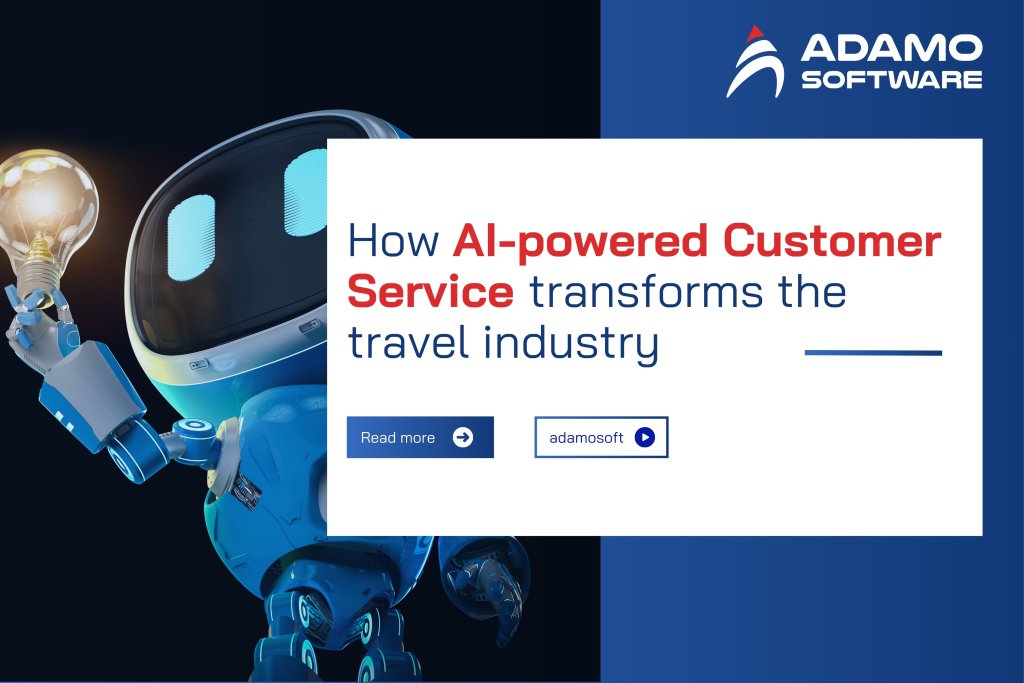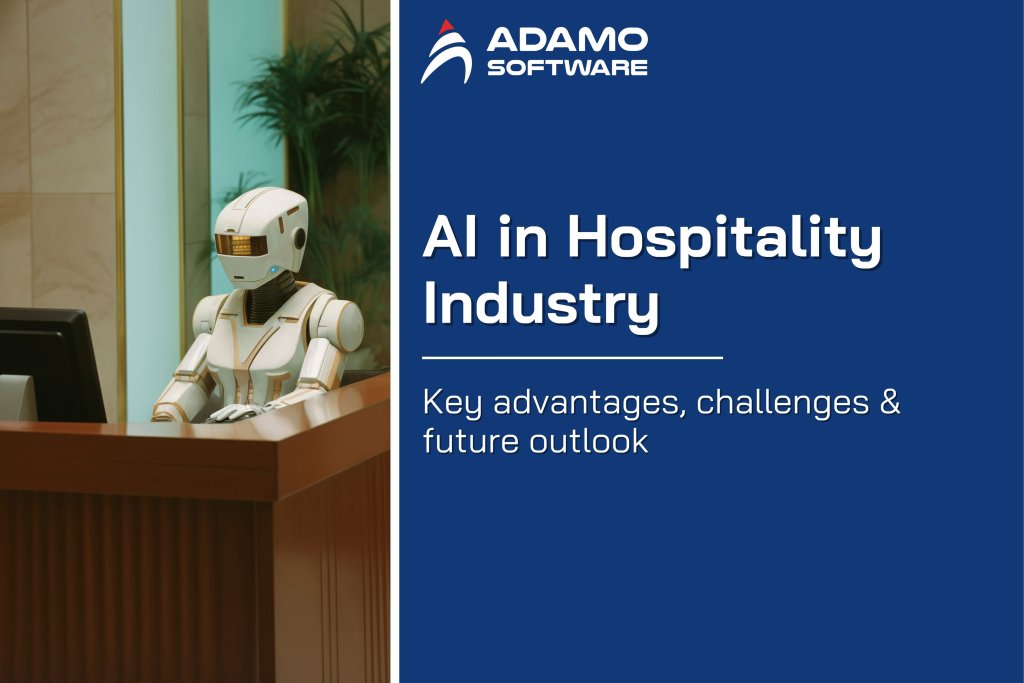Travel Recommendation Engine: How AI transforms your travel experience
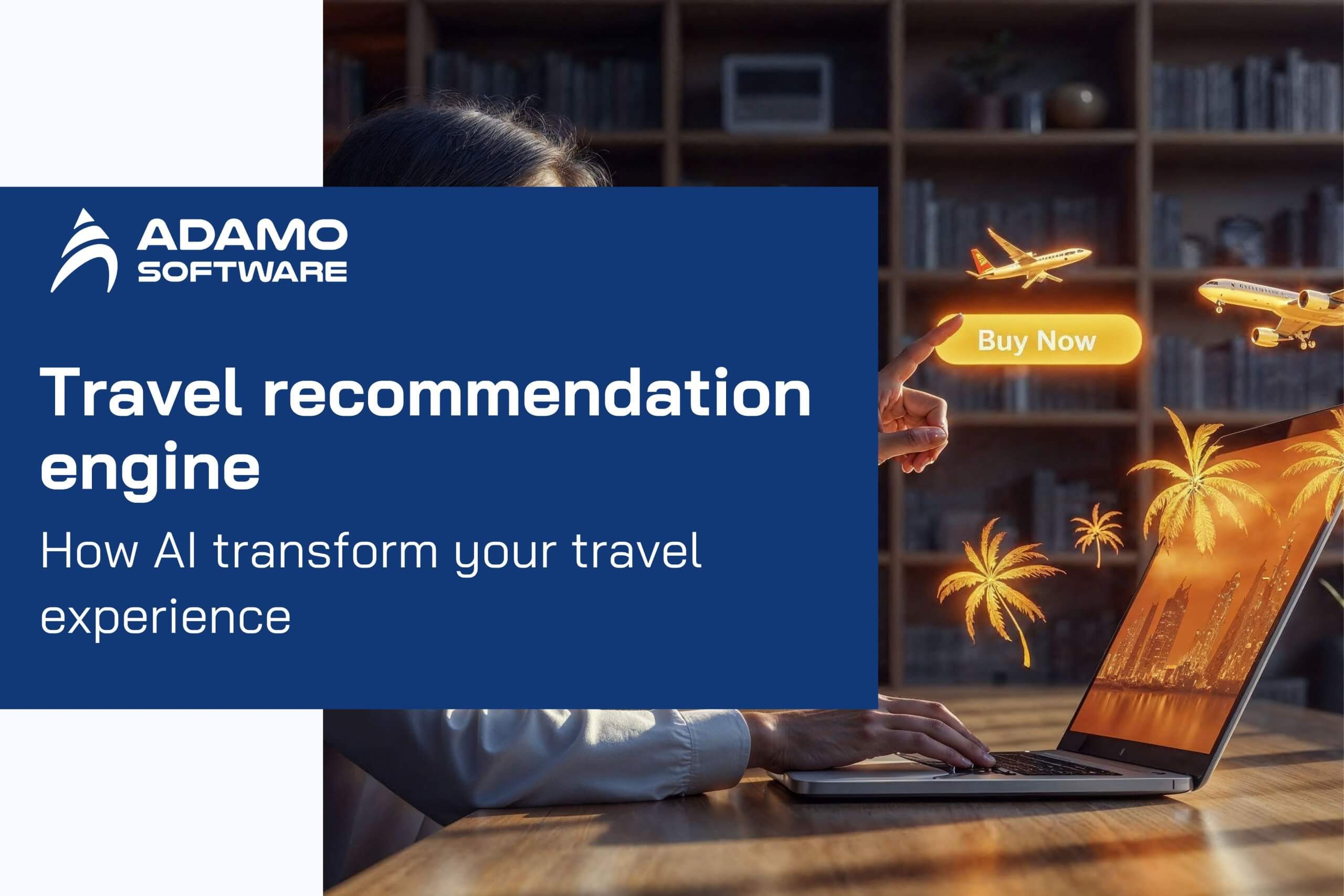
See how a travel recommendation engine leverages AI to match your preferences, making every trip more personal, efficient, and memorable.
Travelers in today’s rapidly evolving world want more than standard recommendations, seeking experiences that precisely match their personal choices and necessities. A revolutionary AI-powered travel recommendation engine now changes how people organize their trips while selecting destinations.
Data analysis involving historic booking information and user behavioral patterns enables travel recommendation engines to provide customized trip options. This simplifies the planning process while boosting enjoyment. The travel recommendation engine sets aside numerous options by identifying suitable recommendations aligned with your tastes.
The technology reinforces user contentment and increases engagement and conversion rates of travel businesses. This blog will explore how AI-based travel recommendations transform user experiences through personalized recommendations, providing better efficiency and convenience than ever before.
Understanding this technology is essential for travelers seeking new adventures and for businesses looking to stay competitive in today’s travel industry.
I. Understanding AI-driven Travel Recommendation Engine
Fulfilling customer demands is the main obstacle for travel companies operating in a competitive market. The time when standardized solutions were sufficient for tourism has finished because current travelers require individually specialized travel encounters. Failing to personalize customer experiences can lead to a decline in loyalty and revenue as customers turn to easily accessible competitors. This could ultimately jeopardize the success of a business.
Implementing a recommendation engine functions as the primary solution for this problem. Predictions of your clients’ next desires emerge through advanced algorithm processing and analysis of enormous data sets, including user behaviors and historical booking records. Hence, this solution provides automated personalization across all contact points for 24-hour daily operation. Also, the unique feature of a travel recommendation engine lies in its ability to interpret individual preferences. This enables the applications to recommend hidden places alongside premium vacation options simultaneously.
The system extends its basic function as a destination recommendation service. Real-time data adjustments trigger the system to deliver instant flight delays and weather alerts with event updates and recommendation readjustments. The system delivers a natural and customized experience, reducing decision overload and strengthening customer happiness with improved sales rates and loyalty levels.
Incorporating a recommendation engine into your app or within AI-driven trip planning positions you as a leader in the latest travel trends. The recommendation tool will help create unforgettable travel experiences, encouraging customer loyalty and setting your brand apart from competitors.
II. How does the Custom Trip Recommendation System work?
The abundance of alternatives available to travelers results in selection difficulties that prevent them from finding the most suitable choices. The travel recommendation engine responds to this problem by delivering customized solutions with fast customer service, accurate forecasting, and numerous additional benefits. Travel brands and webmasters can enhance their service quality through continuous improvement by evaluating the information collected by recommendation engines.
Users can receive useful travel recommendations regarding destinations, hotels, and activities by analyzing their previous bookings, customer review data, and social media profiles. Power systems use AI chatbots for instant access to vital information, aiding users in finding alternatives and resolving issues quickly. The travel experience improves with additional features, including baggage tracking and flight delay prediction capabilities.
A travel recommendation engine typically operates using one or more of the following approaches:
1. Content-Based Filtering
This analysis focuses on individual user-related preferences alongside behavioral activities to create personalized recommendations. The travel recommendation engine produces more accurate suggestions by obtaining additional user-related data about preferences and views. However, the restriction of privacy may result in a “cold start” situation because of insufficient data. Implementing content-based and collaborative filtering is necessary to overcome cases of low data availability.
2. Collaborative Filtering
At this point, the travel recommendation engine gathers user interaction data featuring similar behavioral and taste patterns. Users who share similar profiles receive recommendations that match those previously enjoyed by others with similar profiles. The high accuracy of this system depends on obtaining a substantial amount of user data for successful operation.
3. Knowledge-Based System
The sophisticated method proves suitable for handling travel domains of elevated complexity. Each individual receives their most advantageous recommendations through a rule-based system that considers their needs and expertise alongside their historical interactions. Users and experts can provide input to the system to make enhanced suggestions.
Explore Our Tailor-made Software Development Solutions
We are confident in providing end-to-end software development services from fully-functioned prototype to design, MVP development and deployment.
III. Fundamental Types of AI Travel Recommendation
AI recommendation systems enhance tourists’ booking experiences by providing personalized suggestions that boost user satisfaction and operational efficiency. As illustrated below, AI travel recommendation engines operate in several fundamental forms throughout the tourism industry:
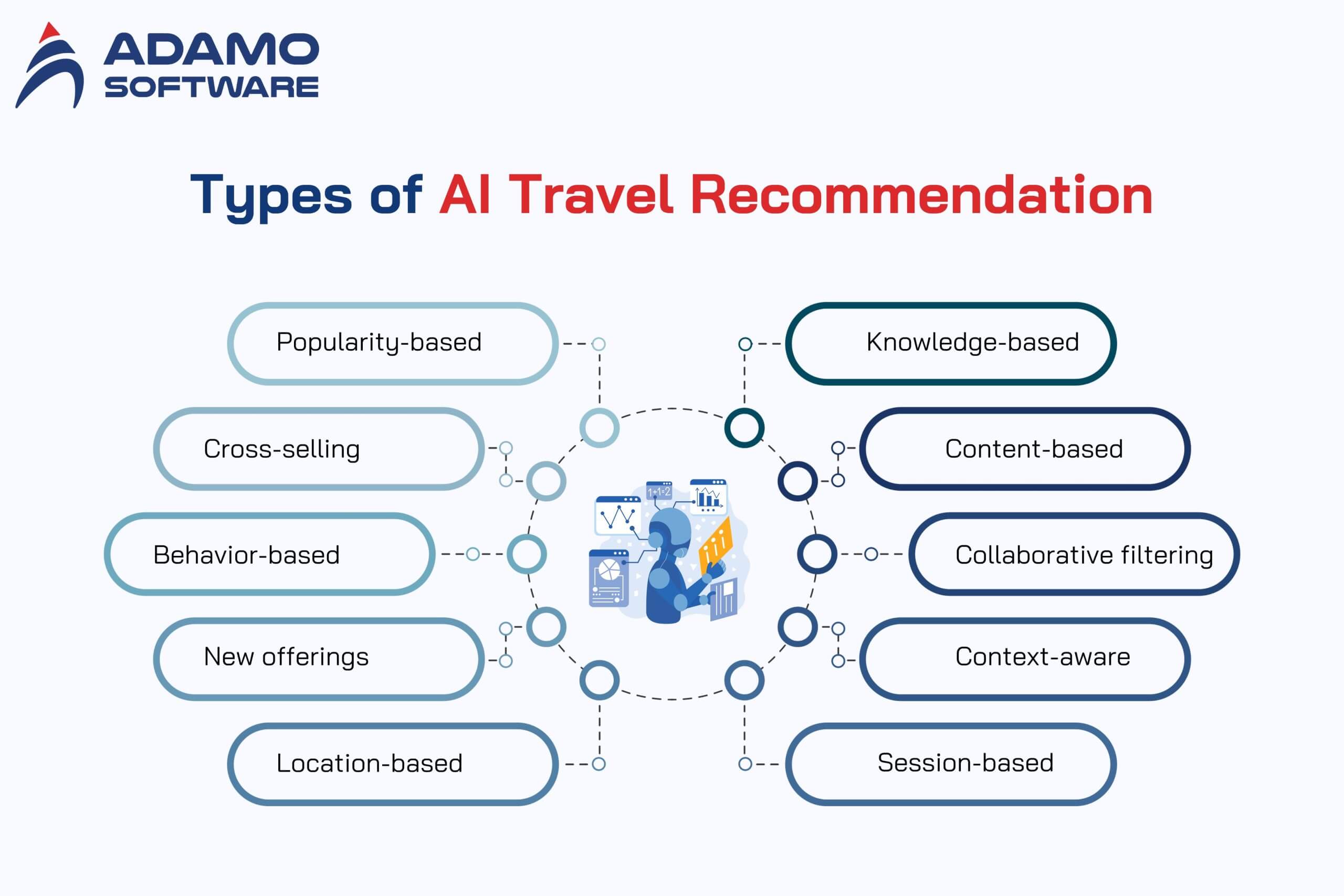
1. Popularity-Based Recommendation Systems
The popularity-based recommendation approach shows trending locations and facilities to other users by collecting and analyzing combined data. Such recommendation systems show users which hotels get booked most often and which attractions have the best ratings. They also indicate what destinations are popular during certain periods and according to user profiles.
For instance, a travel recommendation engine provides users with preferred ski resorts during winter periods and family-oriented hotels while school breaks are in session. By showcasing current traveler interests, these search systems boost conversions by guiding users to popular and valuable experiences.
2. Cross-Selling Recommendations
The travel recommendation engines that perform cross-selling services deliver improved customer experiences through supplemental service suggestions. These suggestions match the traveler’s original reservation to boost the total purchase value. Also, these engines base their recommendations on contextual and session-based data, which tracks user behavior to deliver relevant products and services in real-time.
A travel recommendation engine provides personalized add-ons based on specific travel details, like destination and accommodations, different from e-commerce cross-selling. Travel engines improve customer experiences by suggesting airport transfers, travel insurance, and rental cars alongside accommodation bookings for specific destinations.
This method proves successful at various points during the customer experience. The travel recommendation engine offers fluid suggestions before and after booking. It uses messages like “Complete your stay with…” and “Personalize your trip with…”
3. Behavior-Based Recommendations
Tourism industry personalization tools reach their maximum power when they use customer information to create travel recommendation systems. The engines use behavioral pattern assessments to generate recommendations of the type “Those who stayed in this hotel have also visited…” The recommendation engine learns directly from how users engage with the platform by visiting hotel pages and going through different categories.
The system gathers information about user behavior through tracking, enabling it to generate accommodation recommendations by referencing earlier purchase trends. The system is also highly beneficial for maintaining long-lasting customer relationships across multiple travel occasions, including vacation routines and corporate outings. The recommendation system gets more precise with each interaction the engine records from an individual’s preferences and choices.
For instance, Booking.com executes this strategy by studying consumer behaviors at a group and individual level. Booking.com implements automatic promotion of wooden cabins for users who selected similar lodging during past bookings. Such an approach enables platforms to provide services similar to expert travel agents who match client preferences through data from similar travelers.
4. New Offerings Recommendations
The tourism industry demands different kinds of new offering recommendations than those found in standard e-commerce scenarios. The tourism industry faces unique challenges with new offerings. It presents not just products but new hotels, flight routes, and customer experiences.
Travel recommendation engines generate personalized suggestions through feature analysis and similarity evaluation. Travelers will pursue another trip or explore new destinations when recommendations for new products match their specific preferences. Travelers who wish to experience exciting new adventures benefit strongly from this recommendation strategy.
The fundamental strategy to achieve success involves creating suitable offers that align with traveler profiles. Customers who frequently opt for luxury accommodations will be drawn to a new luxury hotel, yet budget travelers will not find it appealing. Personalization techniques establish valuable relevance between novelty elements and the target audience.
5. Location-Based Recommendations
The travel recommendation engine will transform the journey through location-based personalized suggestions using geolocation data. This engine system groups places through location and clustering approaches to establish routes and packages of tourist experiences based on geographic data.
Travel recommendation engines in tourism can provide bookings for attractions near hotels, restaurant listings, accommodation alternatives, and event details for the guest’s location. Dynamic suggestions make travel planning more helpful and suitable throughout the entire process.
The engine consistently provides essential information to spontaneous travelers who constantly need to find lodging and entertainment. The platform provides quick recommendations, helping users swiftly compare options and make informed travel decisions.
Ready to Outsource?
Discover how we can transform your business with expert IT solutions.
6. Knowledge-Based Recommendations
Travel recommendation engines that rely on knowledge bases receive data from user analyses to generate recommendations through expert rules and strategies. The system uses direct or derived user preferences from account registration data, survey questions, and recorded platform actions.
Multiple elements form the base of the engine’s procedure to generate personalized recommendations. An engine’s suggestions can include vacation styles like active or relaxing, along with group types such as couples, families, or friends. Additionally, it can consider accessibility needs, child amenities, and other special requirements.
The tourism industry experts can establish rules to support business targets while the engine uses user information. The system includes business rules about active promotions, product seasonality, and real-time availability. The recommendation engine uses these rules as part of its processing system to generate strategic goal-compliant and customized suggestions.
7. Content-Based Recommendations
Travel recommendation systems that base decisions on properties’ content features offer users custom suggestions by comparing page characteristics. The system performs text matching of offers and detects common themes through various methods. It also includes snapshot extraction to identify key features and sentiment from reviews, as well as offer clustering for similar properties.
Neighborhood-stressing recommendation systems in tourism evaluate specific attributes of hotels, restaurants, and attractions to provide recommendations to customers. The recommendation system uses the combination of atmosphere, standard, amenities, location, style, and user ratings among its features to deliver customized suggestions.
This technique benefits from not needing user behavior records from previous periods. TripAdvisor retains its user base and keeps bookings active through the “Similar Experiences” section despite the unavailability of original choices.
8. Collaborative Filtering Recommendations
The travel recommendation system based on collaborative filtering shows users’ products that previous users with comparable preference patterns have favored. It also recommends similar items to those that users have positively rated. The recommendation method depends on recognizing established user behaviors instead of established content features or predefined rules.
A travel recommendation engine using collaborative filtering will suggest restaurants to travelers based on matching their food preferences and selection patterns. Additionally, it will present uncommon tourism spots based on the experiences other comparable users have reported. These options become challenging to discover when using standard general search methodologies.
The method successfully exposes hidden destinations and tourism offerings to travelers who would not normally stumble upon them independently. Travel planning goes personal through the algorithm that reveals hidden tourism treasures based on peer preference. Thus, it makes collaborative filtering a strong recommendation method.
9. Context-Aware Recommendations
The recommendation engine analyses more than user preferences while factoring in present conditions when users use the system. The dynamic system adapts its suggestions in real time through immediate external elements.
Tourism needs to merge several variables into its calculations, including traveler location, seasonal factors, weather conditions, and time of day. Additionally, it should consider local events, transportation options, and the system device used. The particular contextual elements assist recommendation refinement to match user needs at each moment.
A context-aware recommendation system for travel will provide heatwave tourists with indoor air-conditioned spots. It will also surface local restaurant listings or highlight upcoming town events to users while they are staying there. The system provides time-relevant recommendations that enhance user satisfaction by delivering practical, suitable options.
A travel recommendation engine boosts its accuracy functions by including contextual factors in its decision-making processes. Travel planning becomes more responsive and intuitive since the recommendations integrate user preferences and the current situation.
10. Session-Based Recommendations
The session-based travel recommendation engine evaluates user interactions in real time while someone uses the website through the current session. However, it does not consider records or saved preferences. This method provides great value to users who use private browsing, plan different travel experiences, or access the website for their first visit.
The recommendation system builds temporary profiles by tracking real-time user interactions. These involve property views, filter applications, search activities, and time spent looking at offers. The system modifies its suggestion framework to match the user’s current preferences.
The recommendation engine suggests properties based on recent views and frequently applied filters. It also recommends hotels and attractions that align with these characteristics. Additionally, it reminds users of seen offers during their current session. Navigation-based recommendations improve user interest by giving instant, relevant suggestions.
Travel recommendation engines based on sessions produce ideal results for one-time users visiting platforms and visitors whose interests vary substantially according to trip objectives. The recommendation system gives personalized advice to users regardless of whether it tracks long-term user information.
IV. Benefits of Travel Recommendation Engine
Standardized generic offers shown to all users will cause a rapid loss of interest. When users experience a monotonous interface, they become dissatisfied and will defect from your application.
Failure to engage customers results in damaged brand credibility and a significant reduction in business revenue. People choose competitor services that deliver individualized experiences that connect to their needs.
The travel marketplace demands personalization as an indispensable requirement because it represents a necessity for modern travelers. Users of travel platforms expect systems to recognize their personal choices so that platforms can present suitable suggestions while actively using the platform.
The travel recommendation engine is vital when it functions in this specific scenario. Enhancing user satisfaction through personalized AI recommendations boosts customer retention and increases transaction rates.
Here’s why delivering personalized experiences through a travel recommendation engine is so crucial:
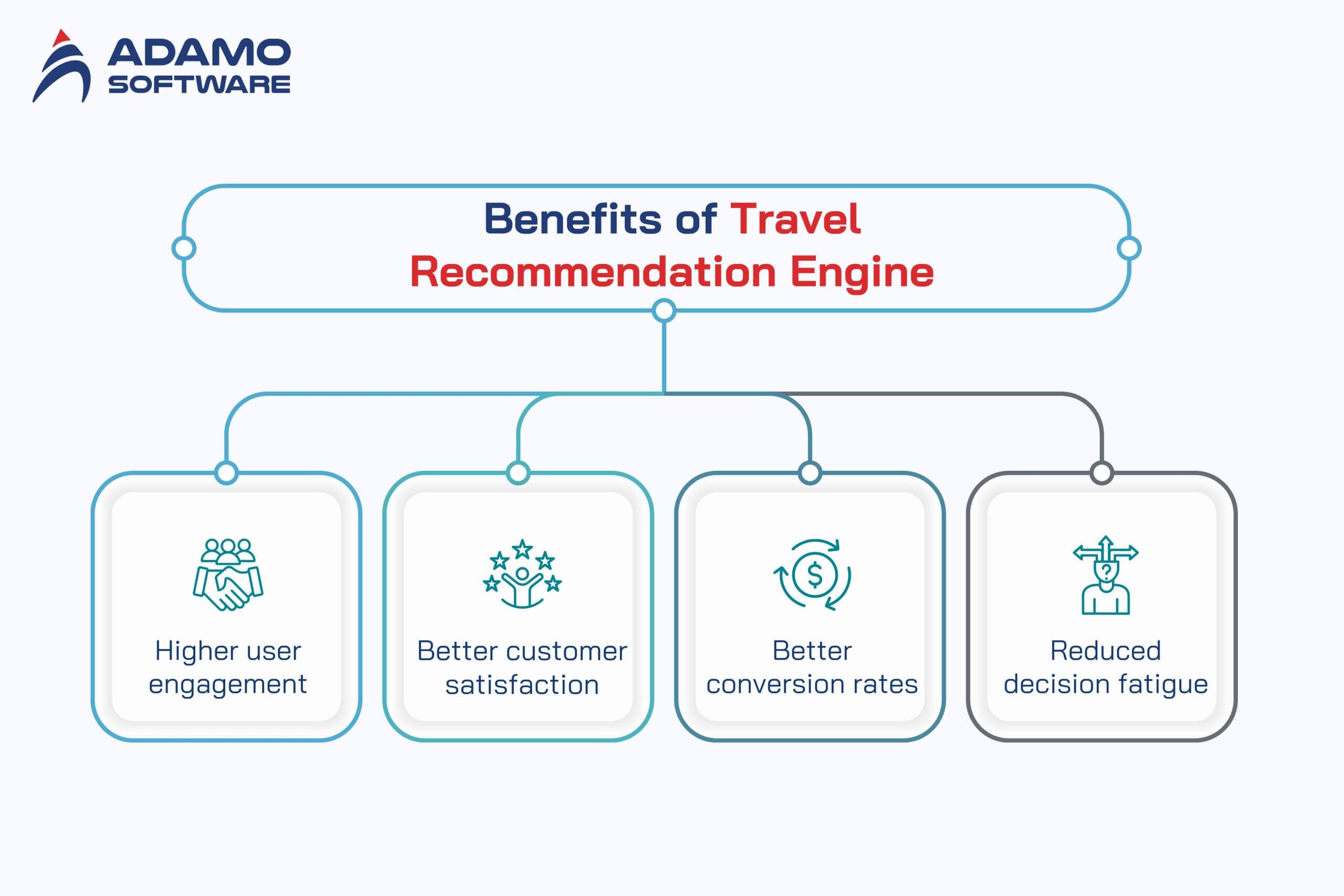
1. Higher User Engagement
Users tend to interact with your application naturally because your travel recommendation engine delivers relevant content to their personal needs. Travelers spend more time on your platform as they seek, book options, and return for future travel planning.
2. Better Customer Satisfaction
The recommendation technology builds a deeper understanding of personal interests, which helps users feel valued by the system. Travelers will have higher satisfaction levels and increased loyalty because recommendations fit their preferences.
3. Better Conversion Rates
Conversions become substantially higher through personalized recommendations developed via travel recommendation technology. The system ensures users discover optimal options that match their requirements, making them more likely to book.
4. Reduced Decision Fatigue
Pre-trip recommendation systems cut down decision exhaustion through their ability to sort travel choices in line with individual travel requirements. The abundance of available options becomes manageable through this technology, which enables users to make decisions promptly and with assurance.
The technology provides dual benefits to users by boosting satisfaction while yielding specific business results that increase user engagement and higher conversion rates. Implementing this sophisticated personalization technology will give organizations the upper hand over their competitors in travel markets.
Hotels and flight booking applications that implement travel recommendation engines produce customer retention and enduring business expansion. They offer customized travel experiences that lead to higher customer satisfaction.
You can explore more about How AI-Powered Customer Service is transforming the travel industry here.
V. Explore how Adamo Software can help you with an AI-powered Travel Recommendation Engine
Your organization can partner with Adamo Software to develop an AI-enabled travel recommendation service that matches your commercial requirements perfectly. Our team adjusts solutions to supply recommendations that reflect the individualized needs of your traveling audience.
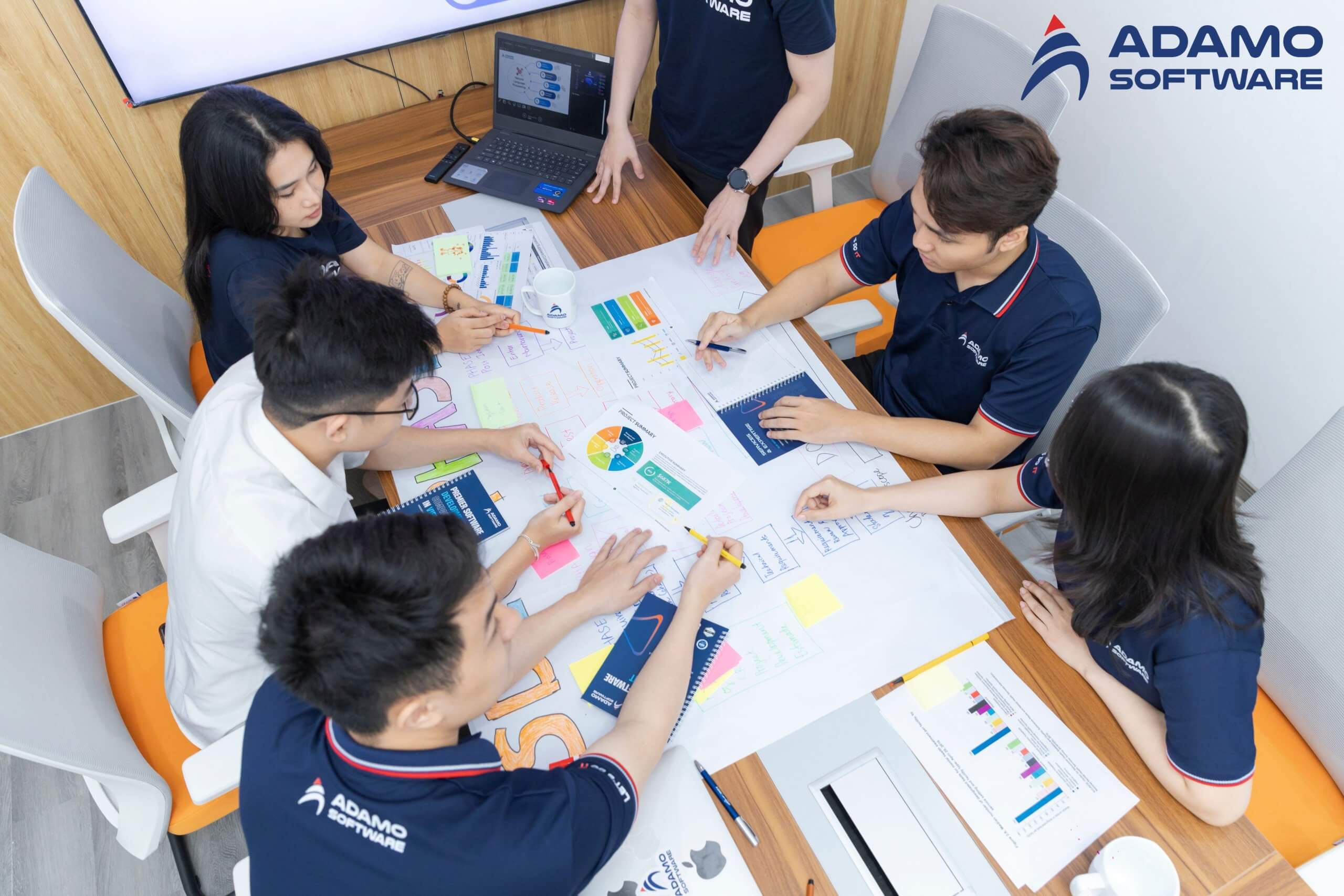
Our company offers sustained assistance and consistent system development, guaranteeing enduring business achievement. The platform is regularly maintained and optimized to enhance user experience, while also remaining adaptable to meet new client needs and changing consumer behaviors.
By partnering with Adamo Software, your digital platform gains a trusted travel recommendation engine that’s focused on ethical practices and proven innovation. The travel and hospitality solutions we create exist for exceptional performance and deliver long-term economic value to survive in competitive marketplaces. Contact us today to level up your travel services!
FAQs
1. How do recommendation engines help find top-rated trips based on preferences?
Recommendation engines analyze traveler data – such as past trips, search history, ratings, and preferences – to suggest the most relevant and highly rated travel options. Using machine learning, these systems identify patterns (like preferred destinations, budgets, or activity types) and rank trips that match those interests.
For families or frequent travelers, this means personalized suggestions – like “top-rated beach resorts for kids” or “budget-friendly adventure tours” – appear instantly without manual searching. In short, recommendation engines turn raw user data into curated travel experiences tailored to individual preferences.
2. Are there recommendation engines for road trip destinations based on interests?
Yes. There are recommendation engines designed specifically for road-trip destination discovery based on your interests. Here’s a comparison of two strong options:
| Platform | How it recommends road-trip destinations | Why it’s good for interest-based selection |
|---|---|---|
| Roadtrippers | Uses an AI-powered “Trip Wizard / Autopilot” that analyses 38 million+ trips and your route to suggest stops and destinations. | Lets you filter by interests (nature, quirky roadside, food, historic) and budget factors like driving time & fuel cost. |
| Wanderlog | Not exclusively road-trip, but supports route planning + suggestions of attractions/places based on preferences and trip style. | Good for families or interest-driven travellers since you can tailor by type of activities, duration, group size and get suggestions accordingly. |




